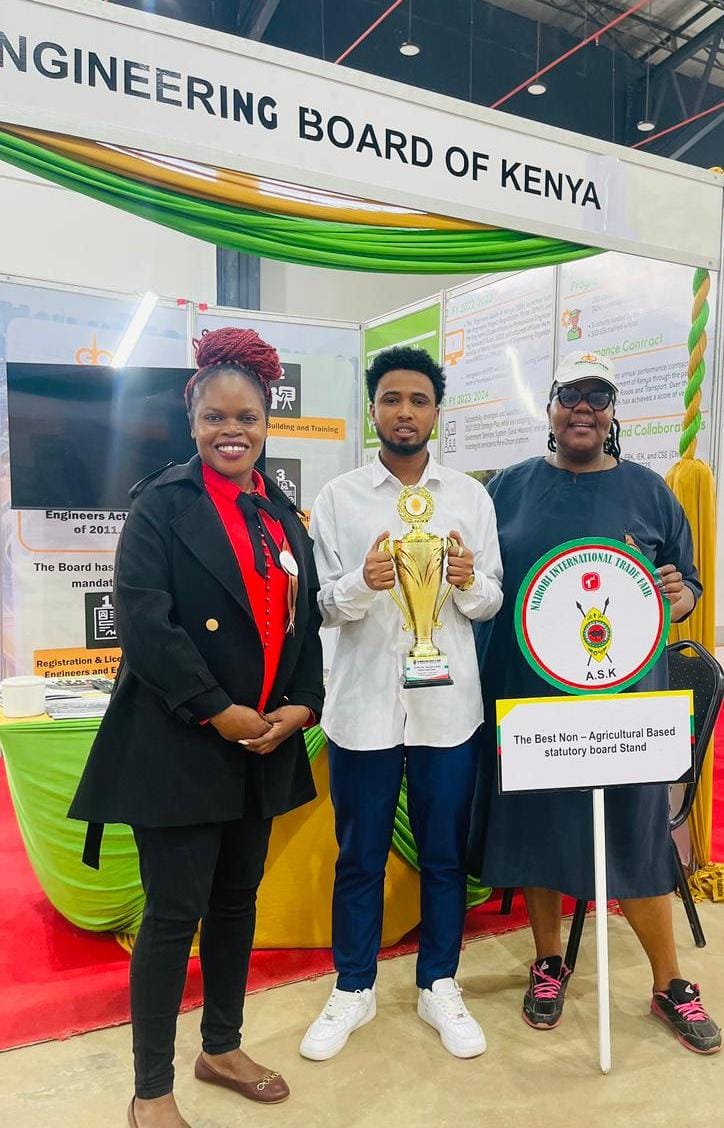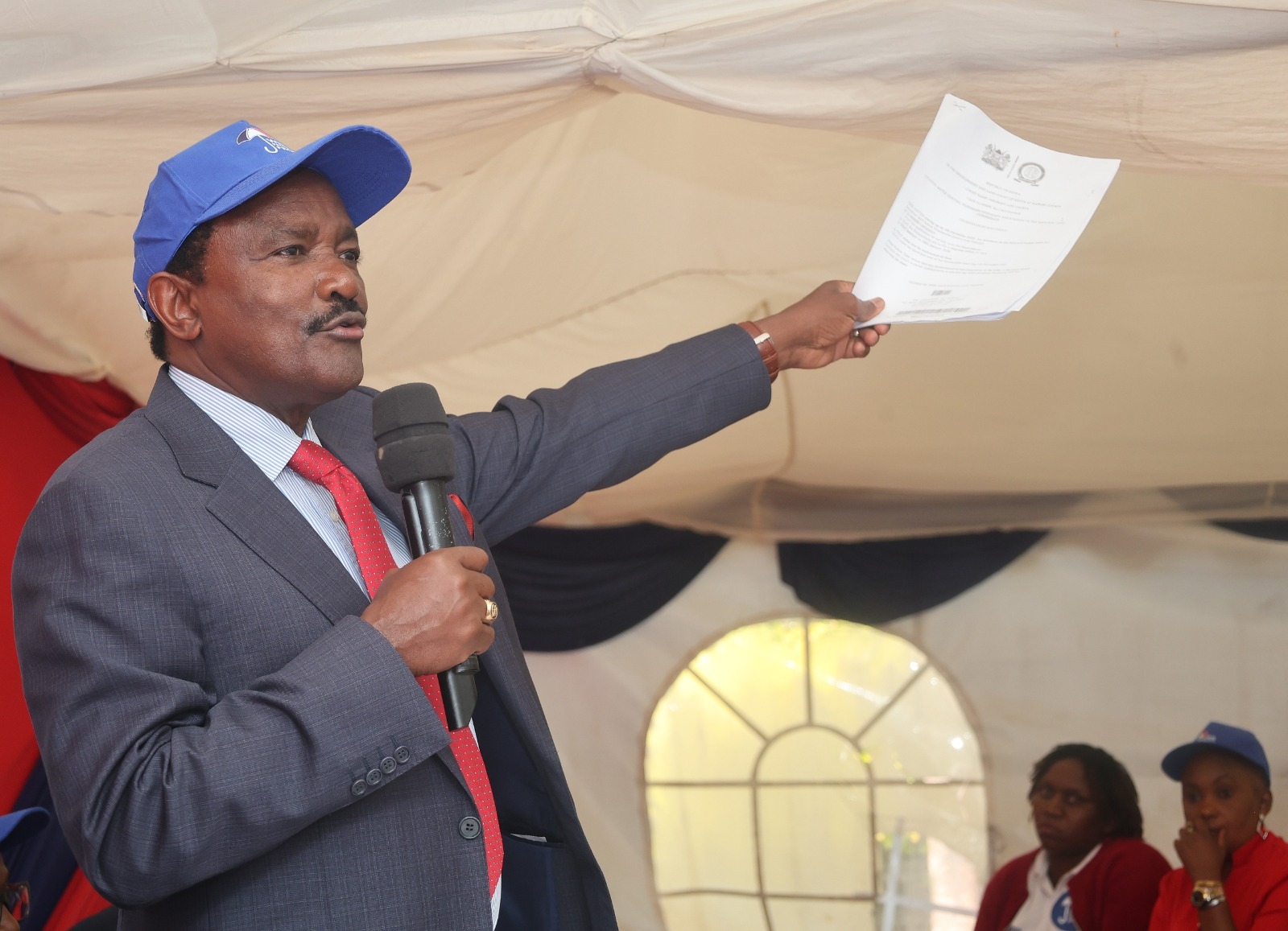

The Engineers Board of Kenya (EBK) has clinched the trophy
for Best Non-Agriculture Based Statutory Stand at the Agricultural Society of
Kenya (ASK) Nairobi International Trade Fair 2025.
The award underscores the Board’s expanding role in driving
agricultural transformation and sustainability.
EBK’s exhibition stood out for its alignment with this
year’s fair theme, “Promoting Climate-Smart Agriculture and Trade Initiatives
for Sustainable Economic Growth.”
The Board earned
praise for its innovative programs on global engineering practice, its focus on
emerging technologies such as artificial intelligence (AI), and its commitment
to supporting stakeholders in addressing food security and climate change.
Traditionally associated with infrastructure and
professional regulation, EBK’s recognition marks a milestone in highlighting
the role of engineers in Kenya’s agricultural value chain.
“This is more than
just an award; it is an affirmation of the pivotal role engineers play in our
economy and particularly in transforming agriculture in Kenya,” said Eng.
Margaret Ogai, the Registrar and CEO of EBK.
Ogai noted that EBK’s recent attainment of provisional
status to the Washington Accord, a global benchmark for engineering education
and competence standards, positions Kenyan engineers to contribute more effectively
to both local and international value chains.
“Our inclusion in the
Washington Accord is a game-changer for Kenya, especially for agricultural
engineers,” she said. “It paves the way for international recognition,
mobility, and collaboration, empowering our engineers to bring world-class
solutions to Kenya’s farms and food systems.”
During an assessment of the EBK stand on September 29, Beth
Mbatia, an officer with the Board, highlighted its mandate in regulating
Kenya’s engineering profession and setting standards that ensure delivery of
quality solutions across all sectors.
She stressed the role of agricultural engineers in advancing
climate-smart and technologically resilient food systems.
“The agricultural sector cannot thrive without engineering,”
Mbatia said. “From irrigation systems and post-harvest management to
mechanization and renewable energy, engineers provide the backbone for
sustainable production.”
At this year’s fair, EBK showcased how technologies such as
AI, data analytics, and automation can be applied to reduce post-harvest
losses, improve efficiency, and strengthen food security.
The Board also emphasized the importance of
interdisciplinary collaboration, bringing together engineers, farmers,
researchers, and policymakers to tackle challenges such as climate change and
resource management.
By winning the award, EBK has signaled its intent to remain
a central player in Kenya’s agricultural transformation agenda.
The recognition reinforces the growing acknowledgment that
engineering is not confined to roads and bridges; it is also key to securing
Kenya’s future in food security and climate resilience.













